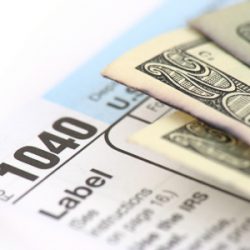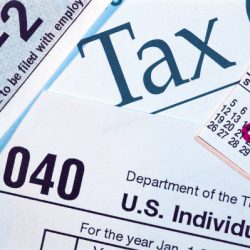As an attorney who has had his finger on the pulse of the taxi industry since the crisis began in early 2016, I am compelled to comment when I think that an injustice is occurring
Although, on the surface, the NYC restructuring program with Marblegate/Depalma/Fieldpoint that formally rolled out on September 19, 2022 looks promising on the surface, an issue that had held the rollout back until now has not been adequately addressed - namely the tax consequence of the loan reduction.
Since this issue has not been adequately resolved, it has been buried in a general disclosure and disclaimer that most taxi owners may be missing since their ...
Read More...
Beware of IRS Telephone Scams
Being contacted by the Internal Revenue Service (IRS) can cause concern for any taxpayer, but imagine receiving a telephone call and hearing this:
"This prerecorded message is to notify you that the IRS has found fraud and misconduct on your tax return. This needs to be resolved immediately, and it's very important that I hear from you as soon as possible or a legal action will be taken against you."
Most people are quick to spot the call as a fake since the IRS doesn't threaten taxpayers by telephone, emails, or text messages—or issue arrest warrants. But any scam can work if you aren't paying close attention.
Remember these ...
Read More...
Has This Happened to You?
A typical Scenario of Financial Hardship
Todd is living a financially comfortable lifestyle, with a household gross income $85,000 per year. Todd is married and has two children. Both are attending middle school and they have made plans for a cruise vacation, which is coming next month. The travel agent has been fully paid in advance for the cruise.
In the interim, Todd's mother-in-law became ill and is hospitalized. The prognoses is that she will need to live in a nursing home, because she will need 24 hour care; however, they decide to bring her to home, as that would be the better option. After all, he has an extra bedroom.
Arrangements ...
Read More...
TAX RELIEF ON SHORT SALES ENDS – FILE BANKRUPTCY TO AVOID TAX CONSEQUENCES
In 2007, Congress enacted the Mortgage Forgiveness Debt Relief Act in 2007 — legislation that exempted from personal income taxes the portion of mortgage-related debts that were forgiven by lenders in the aftermath of the financial crisis.
Under the Internal Revenue Code, when the repayment of some or all of a loan obligation is waived — such as in the case of a mortgage cancellation, short sale or some other type of modification that reduces the unpaid balance of a loan — the IRS views the forgone amount the same as if it were paid as ordinary income, and it is fully taxable to the recipient. Congress saw fit to shield borrowers against ...
Read More...
Do You Want Bank of America As Your Landlord?
Bank of America has announced that it is rolling out a test program in three states (including New York) in which the bank will accept a deed-in-lieu of foreclosure from homeowners in foreclosure and then rent the properties back to the homeowners for an unspecified period of time.
For those homeowners who have tried to modify, have been unable to do so, and remain too stubborn to file for bankruptcy, this may be an option - but it may come with strings attached.
First, BOA has not discussed anything about the tax consequences of the transaction. Even if a homeowner “surrenders” a property bank to a lender, the lender still has the right ...
Read More...
Tax Refunds and Chapter 7 Bankruptcy – Nothing Has Changed For Homeowners With Equity
In bankruptcy, you are allowed to protect various assets, such as cash or cash equivalent assets such as the right to receive a tax refund. This is called exempt property or exemptions.
When the exemption laws were overhauled in New York in January 2011, it proved to be a major benefit to homeowners and renters alike. Homeowners are now allowed to protect up to $150,000.00 in equity in their primary residence. Renters are now allowed to protect up to approximately $12,000.00 in any personal property, including tax refunds.
Despite the above benefits, there has always been, and still remains, a tradeoff for homeowners. If a homeowner ...
Read More...
How the New York Exemptions Increases Will Effect Your Tax Refund in a Bankruptcy
Effective January 22, 2011, New Yorkers filing for bankruptcy will have the added benefit of higher bankruptcy exemptions. The major change is thanks to Governor David Patterson, who signed the bill into law (his last while in office) just before Christmas last year.
Exemptions are the legislative tools that a debtor uses to protect their property when they file for bankruptcy. The purpose of exemptions is to assure that debtors are able to continue living a productive economic life. If a debtor loses all of their belongings when they file bankruptcy, they will have a more difficult time getting back on their feet. The more property that ...
Read More...
Eliminating Taxes: What Taxes are Dischargeable in Bankruptcy?
It is commonly misunderstood that bankruptcy cannot eliminate any tax liability. Although treatment of tax liability is one of the most complex aspects of consumer bankruptcy law, the Bankruptcy Code does offer many debtors substantial income tax relief. Whether or not your bankruptcy filing relieves your tax debt depends on several factors including the nature and the status of tax liability and the type of bankruptcy proceeding. Remember, only individuals can discharge certain tax debts, not businesses.
An individual can discharge debts for taxes in Chapter 7 bankruptcy only if all of the following conditions are true:
They are only ...
Read More...


 What Makes Me Different From the Others?
What Makes Me Different From the Others?